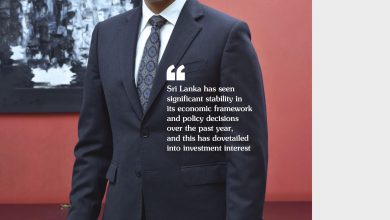CORPORATE CULTURE
Pillars of success
Tamani Dias
Corporate culture is the collection of values, beliefs, ethics and attitudes that characterises an organisation, and guides its practices. A robust corporate culture is critical to creating a strong growth trajectory.
This enables businesses to cultivate effective, dynamic and loyal employees who interact effectively with stakeholders, thereby producing improved bottom lines. Diversity and inclusion, transparency, fair pay and being human are the four key pillars of any corporate culture, according to Tamani Dias.
She notes that a robust corporate culture based on these four pillars is not only important for employees of an organisation but also drives how they engage with stakeholders – be they shareholders, customers, regulators, vendors and others.
Dias explains: “The companies that are respected for their corporate culture have understood the pillars required and embedded them into their DNAs. This has been primarily achieved by the leadership walking the talk and putting their value sets – which are driven by their corporate culture – at the forefront of all decisions and actions.”
Elaborating on the first of the four pillars, she says that “diversity and inclusion provide everyone with opportunities and tools to succeed in their roles irrespective of gender, sexual orientation or physical ability.”
“Each individual has a unique voice, and facilitating them being heard enables organisations to generate innovative ideas, relevant products and services, and effective delivery of those that strongly resonate with society’s needs. This leads to the maximisation of corporate bottom lines,” Dias maintains.
She believes that transparency within an organisation is important as it allows all employees to be clear about what’s expected of them in terms of the corporate’s values, processes, risk appetite and so on.
Moreover, there will be clarity on the consequences of not working within these expectations. Ensuring transparent treatment of all employees is also critical to build trust with the management team and each other in the organisation.
Adding to this, Dias asserts that “fair pay is important to ensure that each and every person is rewarded on the basis of his or her role – once again, irrespective of gender, sexual orientation or physical ability.”
She adds: “It’s important that pay levels are based on performance as this shows employees that they’re valued and their efforts are recognised equitably. This is critical to creating a motivated workforce.”
Finally, she explains that the fourth pillar – being human – serves as the most critical component of a robust culture.
“Understanding that everyone is unique, and providing the tools for them to succeed in their roles and basing consequences on actions while using a ‘human lens’ is critical. This is the foundation for an organisation to build loyalty among its employees,” she emphasises.
Furthermore, Dias cautions that the primary roadblock to building a robust corporate culture is all four pillars not being implemented.
Adding to this, she stresses that the responsibility for building and stimulating the culture in a company must come from the top: “It’s imperative that senior management not only defines a corporate’s values, procedures and processes along the lines of the four pillars but also walks the talk by embedding them in their management style.”
“Only if this is done will the corporate culture be embedded in the modus operandi of both middle and lower management, and become part of an organisation’s DNA,” she affirms.
Dias works closely with many leading corporates in Sri Lanka, and has observed that they understand the importance of creating a robust and unique corporate culture – and taking meaningful steps to achieve this end.
“This is very good as they’re the role models for smaller companies. If they see the positive results achieved by top corporates, smaller businesses will eventually follow,” she concludes.






